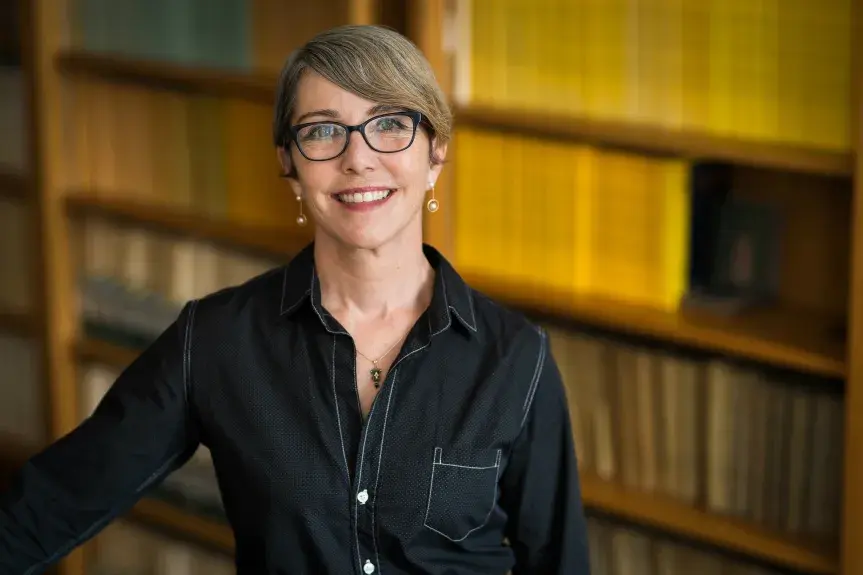Image de couverture

Conférence
Conférences de Jessica Wilson (université de Toronto)
Jessica Wilson, de l'université de Toronto, professeure invitée à l'université Paris 1 Panthéon-Sorbonne donnera trois conférences :
- lundi 27 mars 2023, 12h30-14h, séminaire général de l'IHPST, salle de conférences : Jessica Wilson, The emergence of space-time
- lundi 27 mars 2023, 17h-19h30, Sorbonne, Salle de formation de la BIS (bibliothèque interuniversitaire de la Sorbonne) - séminaire de l'Ecole doctorale de philosophie :
Jessica Wilson (avec commentaire par Perceval Pillon, IHPST)
Metaphysical Skepticism, Relativized Metaphysical Modality, and A Posteriori Metaphysical Necessities
One route to skepticism about metaphysics (drawing on Rosen 2006, Chalmers 2009, Clarke-Doane 2019) proceeds by observing the following tension. On the one hand, metaphysical claims are supposed to be metaphysically necessary (true in every possible world). For example, if Platonic Forms are the metaphysical basis for resemblance between objects, then this is supposed to be necessarily so. But on the other hand, the operative 'modal epistemologies'---that is, the usual ways of determining the truth of claims about what is possible or necessary---seem to offer support for the possibility of incompatible metaphysical claims. For example, it seems conceivable both that Platonic Forms might be the basis for resemblance between objects, and also conceivable that tropes (particular property instances, such as the whiteness of this piece of paper) might be the basis for resemblance between objects.
Here I consider two strategies of response to this route to skepticism about metaphysics. The first strategy---resistance---maintains that a better modal epistemology, based in abduction (inference to the best explanation) rather than conceiving, might provide a basis for justifying one metaphysical claim over others (as per Biggs and Wilson 2018, 2020).
The second strategy---accommodation---appeals to Relativized Metaphysical Modality, or RMM (Murray and Wilson 2012; Hellie, Murray, and Wilson 2020), according to which what is possible or necessary may depend on facts about how the world actually is. This understanding of modality makes room for just one of a set of competing metaphysical claims to be true, and hence metaphysically necessary, while at the same time explaining intuitions that competing metaphysical claims are possible, as reflecting (mere) speculative consideration of what would be possible or necessary against the backdrop assumption that a different world is actual. This strategy is especially interesting, in expanding the application of Kripke's notion of necessary a posteriori truths beyond the standard natural kind expressions to general metaphysical claims.
Benj Hellie, université de Toronto (avec commentaire par Yannis Trophardy, IHPST)
CHISHOLM'S PARADOX AND DEPENDENT METAPHYSICAL NECESSITY
Chisholm's Paradox (CP) exemplifies an unsettling tension in the concept of metaphysical necessity. Intuitively, (fixity) metaphysical necessity/impossibility is the "broadest" form of necessity/impossibility: in particular, what is possibly metaphysically necessary/impossible is metaphysically necessary/impossible simpliciter. At the same time, however, certain metaphysical necessities/impossibilities appear to be "dependent", in a way that may conflict with (fixity). CP exposes a form of such dependence, and a seeming conflict with (fixity), by reflection on the "essentiality of origin" for material artifacts.
Here is the problem. Suppose that parts X and Y are assembled into the axe A. Intuitively, (non-supertolerance) it is metaphysically impossible for A to have been assembled from completely different parts X* and Y*; and also (tolerance) it is metaphysically possible for A to have been assembled from moderately different parts X and Y*. So imagine that moderately different parts X and Y* are assembled into an axe: then, the result would still be axe A. Plausibly, the analogue of (tolerance) holds in such a case: namely, it is then metaphysically possible for A to have been assembled from the moderately different parts X* and Y*. So whether it is metaphysically possible for A to be assembled from X* and Y* depends on what is the case. But (dependence as possibility) when whether something is so depends on what is the case, it is possible for it to be so. So it is possible for it to be metaphysically possible for A to be assembled from X* and Y*. But (fixity) requires that what is possibly metaphysically possible is metaphysically possible -- contradicting (weak tolerance).
We propose to resolve this tension by rejecting (dependence as possibility): we articulate a conception of "dependence" on which whether p is metaphysically impossible can depend on what is so, without it being both possible for p to be metaphysically impossible and possible for p to be metaphysically possible.
-
mardi 28 mars, 16h-18h Collège de France, salle Glowinskiconférence co-organisée par le Collège de France, chaire "Métaphysique et philosophie de la connaissance", l'IHPST et HiPhiMo (centre d'histoire des philosophies modernes de la Sorbonne)
Jessica Wilson, université de Toronto
The Strong Emergence of Free WillMetaphysically emergent phenomena synchronically depend on, yet are also to some extent autonomous from, complex lower-level physical goings-on. In my recent book, Metaphysical Emergence, I argue that there are two forms of such emergence: Weak (whereby an emergent has a proper subset of powers of its physical dependence base) and Strong (whereby an emergent has fundamentally novel powers as compared to its physical dependence base). After presenting my two schemas for emergence, I argue that free will is Strongly emergent.
Affiche
(PDF, 347 Ko)